afterLoad (456.48KB) (447μs)
afterInitialise (1.27MB) (47.2ms)
afterRoute (840.55KB) (14.66ms)
beforeRenderComponent com_tags (21.36KB) (212μs)
afterRenderComponent com_tags (3.08MB) (181ms)
afterDispatch (27.42KB) (2.89ms)
beforeRenderRawModule mod_articles_category (READ MORE...) (443.86KB) (9.66ms)
Before Access::preloadComponents (all components) (50.9KB) (383μs)
After Access::preloadComponents (all components) (103.05KB) (1.84ms)
Before Access::getAssetRules (id:8 name:com_content) (840B) (16μs)
After Access::getAssetRules (id:8 name:com_content) (7.05KB) (41μs)
afterRenderRawModule mod_articles_category (READ MORE...) (1.84KB) (103ms)
beforeRenderRawModule mod_custom (BOOST YOUR IMMUNE DEFENSE) (6.45KB) (28μs)
afterRenderRawModule mod_custom (BOOST YOUR IMMUNE DEFENSE) (3.8KB) (173μs)
beforeRenderRawModule mod_tags_popular (Search) (2.36KB) (15μs)
afterRenderRawModule mod_tags_popular (Search) (40.95KB) (147ms)
beforeRenderRawModule mod_custom (Get additionel and more detailed knowledge ) (816B) (28μs)
afterRenderRawModule mod_custom (Get additionel and more detailed knowledge ) (1.55KB) (45μs)
beforeRenderRawModule mod_custom (Overview of vitamins, minerals, and essential fatty acids) (768B) (11μs)
afterRenderRawModule mod_custom (Overview of vitamins, minerals, and essential fatty acids) (960B) (23μs)
beforeRenderRawModule mod_custom (Q10 goes by many names) (608B) (9μs)
afterRenderRawModule mod_custom (Q10 goes by many names) (928B) (19μs)
beforeRenderRawModule mod_custom (Check this before you buy a Q10 product) (752B) (9μs)
afterRenderRawModule mod_custom (Check this before you buy a Q10 product) (944B) (18μs)
beforeRenderRawModule mod_custom (Are you taking supplements) (736B) (9μs)
afterRenderRawModule mod_custom (Are you taking supplements) (1.03KB) (18μs)
beforeRenderRawModule mod_custom (Weight loss that works) (736B) (9μs)
afterRenderRawModule mod_custom (Weight loss that works) (1.03KB) (18μs)
beforeRenderRawModule mod_custom (Antiaging) (720B) (8μs)
afterRenderRawModule mod_custom (Antiaging) (912B) (17μs)
beforeRenderRawModule mod_menu (Are you getting enough vitamins and minerals?) (2.5KB) (11μs)
afterRenderRawModule mod_menu (Are you getting enough vitamins and minerals?) (22.39KB) (1.73ms)
beforeRenderRawModule mod_menu (The key to increased well-being) (736B) (28μs)
afterRenderRawModule mod_menu (The key to increased well-being) (17.83KB) (286μs)
beforeRenderRawModule mod_menu (Did you know.....) (720B) (16μs)
afterRenderRawModule mod_menu (Did you know.....) (25.52KB) (1.41ms)
beforeRenderRawModule mod_custom (Useful Links) (1.06KB) (26μs)
afterRenderRawModule mod_custom (Useful Links) (1.02KB) (43μs)
beforeRenderRawModule mod_custom (Chronic fatigue tied Alan to his bed but Q10 capsules saved him:) (244.28KB) (3.86ms)
afterRenderRawModule mod_custom (Chronic fatigue tied Alan to his bed but Q10 capsules saved him:) (1.06KB) (46μs)
beforeRenderModule mod_custom (Chronic fatigue tied Alan to his bed but Q10 capsules saved him:) (768B) (4μs)
afterRenderModule mod_custom (Chronic fatigue tied Alan to his bed but Q10 capsules saved him:) (1.3KB) (51μs)
beforeRenderRawModule mod_custom (Cholesterol-lowering without side effects:) (368B) (13μs)
afterRenderRawModule mod_custom (Cholesterol-lowering without side effects:) (1.06KB) (24μs)
beforeRenderModule mod_custom (Cholesterol-lowering without side effects:) (752B) (2μs)
afterRenderModule mod_custom (Cholesterol-lowering without side effects:) (1.28KB) (1.93ms)
beforeRenderModule mod_articles_category (READ MORE...) (20.82KB) (398μs)
afterRenderModule mod_articles_category (READ MORE...) (1.25KB) (45μs)
beforeRenderModule mod_custom (BOOST YOUR IMMUNE DEFENSE) (6.81KB) (14μs)
afterRenderModule mod_custom (BOOST YOUR IMMUNE DEFENSE) (1.28KB) (27μs)
beforeRenderModule mod_tags_popular (Search) (1.98KB) (11μs)
afterRenderModule mod_tags_popular (Search) (1.27KB) (24μs)
beforeRenderModule mod_custom (Get additionel and more detailed knowledge ) (1.17KB) (10μs)
afterRenderModule mod_custom (Get additionel and more detailed knowledge ) (1.3KB) (22μs)
beforeRenderModule mod_custom (Overview of vitamins, minerals, and essential fatty acids) (384B) (9μs)
afterRenderModule mod_custom (Overview of vitamins, minerals, and essential fatty acids) (1.31KB) (22μs)
beforeRenderModule mod_custom (Q10 goes by many names) (208B) (8μs)
afterRenderModule mod_custom (Q10 goes by many names) (1.27KB) (1.54ms)
beforeRenderModule mod_custom (Check this before you buy a Q10 product) (352B) (25μs)
afterRenderModule mod_custom (Check this before you buy a Q10 product) (1.28KB) (91μs)
beforeRenderModule mod_custom (Are you taking supplements) (352B) (13μs)
afterRenderModule mod_custom (Are you taking supplements) (1.28KB) (28μs)
beforeRenderModule mod_custom (Weight loss that works) (336B) (10μs)
afterRenderModule mod_custom (Weight loss that works) (1.27KB) (23μs)
beforeRenderModule mod_custom (Antiaging) (336B) (9μs)
afterRenderModule mod_custom (Antiaging) (3.77KB) (23μs)
beforeRenderModule mod_menu (Are you getting enough vitamins and minerals?) (2.13KB) (11μs)
afterRenderModule mod_menu (Are you getting enough vitamins and minerals?) (1.3KB) (471μs)
beforeRenderModule mod_menu (The key to increased well-being) (352B) (21μs)
afterRenderModule mod_menu (The key to increased well-being) (1.28KB) (34μs)
beforeRenderModule mod_menu (Did you know.....) (336B) (13μs)
afterRenderModule mod_menu (Did you know.....) (1.27KB) (25μs)
beforeRenderModule mod_custom (Useful Links) (1.44KB) (10μs)
afterRenderModule mod_custom (Useful Links) (1.27KB) (23μs)
beforeRenderRawModule mod_menu (Main Menu - English) (29.14KB) (3.64ms)
afterRenderRawModule mod_menu (Main Menu - English) (186.95KB) (4.16ms)
beforeRenderModule mod_menu (Main Menu - English) (720B) (4μs)
afterRenderModule mod_menu (Main Menu - English) (4.86KB) (2.06ms)
beforeRenderRawModule mod_languages (Sprogskift) (3.94KB) (15μs)
afterRenderRawModule mod_languages (Sprogskift) (22.55KB) (3.73ms)
beforeRenderModule mod_languages (Sprogskift) (720B) (5μs)
afterRenderModule mod_languages (Sprogskift) (5.31KB) (21μs)
beforeRenderRawModule mod_finder () (6.34KB) (9μs)
afterRenderRawModule mod_finder () (128.59KB) (4.37ms)
beforeRenderModule mod_finder () (704B) (5μs)
afterRenderModule mod_finder () (3.29KB) (33μs)
beforeRenderRawModule mod_custom () (6.62KB) (1.48ms)
afterRenderRawModule mod_custom () (22.68KB) (970μs)
beforeRenderModule mod_custom () (704B) (5μs)
afterRenderModule mod_custom () (1.23KB) (50μs)
beforeRenderRawModule mod_menu (Main Menu - English) (5.07KB) (104μs)
afterRenderRawModule mod_menu (Main Menu - English) (6.3KB) (2.89ms)
beforeRenderModule mod_menu (Main Menu - English) (720B) (5μs)
afterRenderModule mod_menu (Main Menu - English) (1.25KB) (49μs)
beforeRenderRawModule mod_languages (Sprogskift Mobil) (912B) (19μs)
afterRenderRawModule mod_languages (Sprogskift Mobil) (3.89KB) (698μs)
beforeRenderModule mod_languages (Sprogskift Mobil) (720B) (3μs)
afterRenderModule mod_languages (Sprogskift Mobil) (1.27KB) (32μs)
beforeRenderRawModule mod_finder () (2.3KB) (9μs)
afterRenderRawModule mod_finder () (6.25KB) (1.28ms)
beforeRenderModule mod_finder () (704B) (5μs)
afterRenderModule mod_finder () (1.23KB) (49μs)
beforeRenderRawModule mod_custom () (8.66KB) (252μs)
afterRenderRawModule mod_custom () (904B) (143μs)
beforeRenderModule mod_custom () (704B) (3μs)
afterRenderModule mod_custom () (2.43KB) (28μs)
beforeRenderRawModule mod_custom () (688B) (89μs)
afterRenderRawModule mod_custom () (896B) (1.19ms)
beforeRenderModule mod_custom () (704B) (4μs)
afterRenderModule mod_custom () (2.71KB) (30μs)
afterRender (650.58KB) (19.03ms)
| 1 x afterRenderComponent com_tags (3.08MB) (31.84%) | 180.74ms |
| 1 x afterRenderRawModule mod_tags_popular (Search) (40.95KB) (25.81%) | 146.52ms |
| 1 x afterRenderRawModule mod_articles_category (READ MORE...) (1.84KB) (18.18%) | 103.19ms |
| 1 x afterInitialise (1.27MB) (8.31%) | 47.20ms |
| 1 x afterRender (650.58KB) (3.35%) | 19.03ms |
| 1 x afterRoute (840.55KB) (2.58%) | 14.66ms |
| 1 x beforeRenderRawModule mod_articles_category (READ MORE...) (443.86KB) (1.7%) | 9.66ms |
| 1 x afterRenderRawModule mod_finder () (128.59KB) (0.77%) | 4.37ms |
| 1 x afterRenderRawModule mod_menu (Main Menu - English) (186.95KB) (0.73%) | 4.16ms |
| 1 x beforeRenderRawModule mod_custom (Chronic fatigue tied Alan to his bed but Q10 capsules saved him:) (244.28KB) (0.68%) | 3.86ms |
| 1 x afterRenderRawModule mod_languages (Sprogskift) (22.55KB) (0.66%) | 3.73ms |
| 1 x beforeRenderRawModule mod_menu (Main Menu - English) (29.14KB) (0.64%) | 3.64ms |
| 1 x afterDispatch (27.42KB) (0.51%) | 2.89ms |
| 1 x afterRenderRawModule mod_menu (Main Menu - English) (6.3KB) (0.51%) | 2.89ms |
| 1 x afterRenderModule mod_menu (Main Menu - English) (4.86KB) (0.36%) | 2.06ms |
| 1 x afterRenderModule mod_custom (Cholesterol-lowering without side effects:) (1.28KB) (0.34%) | 1.93ms |
| 1 x After Access::preloadComponents (all components) (103.05KB) (0.32%) | 1.84ms |
| 1 x afterRenderRawModule mod_menu (Are you getting enough vitamins and minerals?) (22.39KB) (0.31%) | 1.73ms |
| 1 x afterRenderModule mod_custom (Q10 goes by many names) (1.27KB) (0.27%) | 1.54ms |
| 1 x beforeRenderRawModule mod_custom () (6.62KB) (0.26%) | 1.48ms |
| 1 x afterRenderRawModule mod_menu (Did you know.....) (25.52KB) (0.25%) | 1.41ms |
| 1 x afterRenderRawModule mod_finder () (6.25KB) (0.23%) | 1.28ms |
| 1 x afterRenderRawModule mod_custom () (896B) (0.21%) | 1.19ms |
| 1 x afterRenderRawModule mod_custom () (22.68KB) (0.17%) | 970μs |
| 1 x afterRenderRawModule mod_languages (Sprogskift Mobil) (3.89KB) (0.12%) | 698μs |
| 1 x afterRenderModule mod_menu (Are you getting enough vitamins and minerals?) (1.3KB) (0.08%) | 471μs |
| 1 x afterLoad (456.48KB) (0.08%) | 447μs |
| 1 x beforeRenderModule mod_articles_category (READ MORE...) (20.82KB) (0.07%) | 398μs |
| 1 x Before Access::preloadComponents (all components) (50.9KB) (0.07%) | 383μs |
| 1 x afterRenderRawModule mod_menu (The key to increased well-being) (17.83KB) (0.05%) | 286μs |
| 1 x beforeRenderRawModule mod_custom () (8.66KB) (0.04%) | 252μs |
| 1 x beforeRenderComponent com_tags (21.36KB) (0.04%) | 212μs |
| 1 x afterRenderRawModule mod_custom (BOOST YOUR IMMUNE DEFENSE) (3.8KB) (0.03%) | 173μs |
| 1 x afterRenderRawModule mod_custom () (904B) (0.03%) | 143μs |
| 1 x beforeRenderRawModule mod_menu (Main Menu - English) (5.07KB) (0.02%) | 104μs |
| 1 x afterRenderModule mod_custom (Check this before you buy a Q10 product) (1.28KB) (0.02%) | 91μs |
| 1 x beforeRenderRawModule mod_custom () (688B) (0.02%) | 89μs |
| 1 x afterRenderModule mod_custom (Chronic fatigue tied Alan to his bed but Q10 capsules saved him:) (1.3KB) (0.01%) | 51μs |
| 1 x afterRenderModule mod_custom () (1.23KB) (0.01%) | 50μs |
| 1 x afterRenderModule mod_menu (Main Menu - English) (1.25KB) (0.01%) | 49μs |
| 1 x afterRenderModule mod_finder () (1.23KB) (0.01%) | 49μs |
| 1 x afterRenderRawModule mod_custom (Chronic fatigue tied Alan to his bed but Q10 capsules saved him:) (1.06KB) (0.01%) | 46μs |
| 1 x afterRenderRawModule mod_custom (Get additionel and more detailed knowledge ) (1.55KB) (0.01%) | 45μs |
| 1 x afterRenderModule mod_articles_category (READ MORE...) (1.25KB) (0.01%) | 45μs |
| 1 x afterRenderRawModule mod_custom (Useful Links) (1.02KB) (0.01%) | 43μs |
| 1 x After Access::getAssetRules (id:8 name:com_content) (7.05KB) (0.01%) | 41μs |
| 1 x afterRenderModule mod_menu (The key to increased well-being) (1.28KB) (0.01%) | 34μs |
| 1 x afterRenderModule mod_finder () (3.29KB) (0.01%) | 33μs |
| 1 x afterRenderModule mod_languages (Sprogskift Mobil) (1.27KB) (0.01%) | 32μs |
| 1 x afterRenderModule mod_custom () (2.71KB) (0.01%) | 30μs |
| 1 x beforeRenderRawModule mod_custom (BOOST YOUR IMMUNE DEFENSE) (6.45KB) (0%) | 28μs |
| 1 x beforeRenderRawModule mod_custom (Get additionel and more detailed knowledge ) (816B) (0%) | 28μs |
| 1 x beforeRenderRawModule mod_menu (The key to increased well-being) (736B) (0%) | 28μs |
| 1 x afterRenderModule mod_custom (Are you taking supplements) (1.28KB) (0%) | 28μs |
| 1 x afterRenderModule mod_custom () (2.43KB) (0%) | 28μs |
| 1 x afterRenderModule mod_custom (BOOST YOUR IMMUNE DEFENSE) (1.28KB) (0%) | 27μs |
| 1 x beforeRenderRawModule mod_custom (Useful Links) (1.06KB) (0%) | 26μs |
| 1 x beforeRenderModule mod_custom (Check this before you buy a Q10 product) (352B) (0%) | 25μs |
| 1 x afterRenderModule mod_menu (Did you know.....) (1.27KB) (0%) | 25μs |
| 1 x afterRenderRawModule mod_custom (Cholesterol-lowering without side effects:) (1.06KB) (0%) | 24μs |
| 1 x afterRenderModule mod_tags_popular (Search) (1.27KB) (0%) | 24μs |
| 1 x afterRenderModule mod_custom (Antiaging) (3.77KB) (0%) | 23μs |
| 1 x afterRenderModule mod_custom (Useful Links) (1.27KB) (0%) | 23μs |
| 1 x afterRenderRawModule mod_custom (Overview of vitamins, minerals, and essential fatty acids) (960B) (0%) | 23μs |
| 1 x afterRenderModule mod_custom (Weight loss that works) (1.27KB) (0%) | 23μs |
| 1 x afterRenderModule mod_custom (Get additionel and more detailed knowledge ) (1.3KB) (0%) | 22μs |
| 1 x afterRenderModule mod_custom (Overview of vitamins, minerals, and essential fatty acids) (1.31KB) (0%) | 22μs |
| 1 x beforeRenderModule mod_menu (The key to increased well-being) (352B) (0%) | 21μs |
| 1 x afterRenderModule mod_languages (Sprogskift) (5.31KB) (0%) | 21μs |
| 1 x afterRenderRawModule mod_custom (Q10 goes by many names) (928B) (0%) | 19μs |
| 1 x beforeRenderRawModule mod_languages (Sprogskift Mobil) (912B) (0%) | 19μs |
| 1 x afterRenderRawModule mod_custom (Weight loss that works) (1.03KB) (0%) | 18μs |
| 1 x afterRenderRawModule mod_custom (Check this before you buy a Q10 product) (944B) (0%) | 18μs |
| 1 x afterRenderRawModule mod_custom (Are you taking supplements) (1.03KB) (0%) | 18μs |
| 1 x afterRenderRawModule mod_custom (Antiaging) (912B) (0%) | 17μs |
| 1 x Before Access::getAssetRules (id:8 name:com_content) (840B) (0%) | 16μs |
| 1 x beforeRenderRawModule mod_menu (Did you know.....) (720B) (0%) | 16μs |
| 1 x beforeRenderRawModule mod_tags_popular (Search) (2.36KB) (0%) | 15μs |
| 1 x beforeRenderRawModule mod_languages (Sprogskift) (3.94KB) (0%) | 15μs |
| 1 x beforeRenderModule mod_custom (BOOST YOUR IMMUNE DEFENSE) (6.81KB) (0%) | 14μs |
| 1 x beforeRenderRawModule mod_custom (Cholesterol-lowering without side effects:) (368B) (0%) | 13μs |
| 1 x beforeRenderModule mod_custom (Are you taking supplements) (352B) (0%) | 13μs |
| 1 x beforeRenderModule mod_menu (Did you know.....) (336B) (0%) | 13μs |
| 3 x beforeRenderModule mod_custom () (704B) (0%) | 12μs |
| 1 x beforeRenderRawModule mod_menu (Are you getting enough vitamins and minerals?) (2.5KB) (0%) | 11μs |
| 1 x beforeRenderRawModule mod_custom (Overview of vitamins, minerals, and essential fatty acids) (768B) (0%) | 11μs |
| 1 x beforeRenderModule mod_tags_popular (Search) (1.98KB) (0%) | 11μs |
| 1 x beforeRenderModule mod_menu (Are you getting enough vitamins and minerals?) (2.13KB) (0%) | 11μs |
| 1 x beforeRenderModule mod_custom (Get additionel and more detailed knowledge ) (1.17KB) (0%) | 10μs |
| 1 x beforeRenderModule mod_custom (Weight loss that works) (336B) (0%) | 10μs |
| 1 x beforeRenderModule mod_custom (Useful Links) (1.44KB) (0%) | 10μs |
| 2 x beforeRenderModule mod_finder () (704B) (0%) | 10μs |
| 1 x beforeRenderRawModule mod_custom (Q10 goes by many names) (608B) (0%) | 9μs |
| 1 x beforeRenderRawModule mod_custom (Check this before you buy a Q10 product) (752B) (0%) | 9μs |
| 1 x beforeRenderRawModule mod_custom (Are you taking supplements) (736B) (0%) | 9μs |
| 1 x beforeRenderRawModule mod_custom (Weight loss that works) (736B) (0%) | 9μs |
| 1 x beforeRenderModule mod_custom (Overview of vitamins, minerals, and essential fatty acids) (384B) (0%) | 9μs |
| 1 x beforeRenderModule mod_custom (Antiaging) (336B) (0%) | 9μs |
| 2 x beforeRenderModule mod_menu (Main Menu - English) (720B) (0%) | 9μs |
| 1 x beforeRenderRawModule mod_finder () (6.34KB) (0%) | 9μs |
| 1 x beforeRenderRawModule mod_finder () (2.3KB) (0%) | 9μs |
| 1 x beforeRenderModule mod_custom (Q10 goes by many names) (208B) (0%) | 8μs |
| 1 x beforeRenderRawModule mod_custom (Antiaging) (720B) (0%) | 8μs |
| 1 x beforeRenderModule mod_languages (Sprogskift) (720B) (0%) | 5μs |
| 1 x beforeRenderModule mod_custom (Chronic fatigue tied Alan to his bed but Q10 capsules saved him:) (768B) (0%) | 4μs |
| 1 x beforeRenderModule mod_languages (Sprogskift Mobil) (720B) (0%) | 3μs |
| 1 x beforeRenderModule mod_custom (Cholesterol-lowering without side effects:) (752B) (0%) | 2μs |
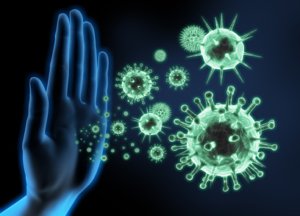 According to the statistics, far too many patients contract an infection while being hospitalized in a Danish hospital. This has enormous human and economic costs that need to be addressed. Hospital infections are not only a consequence of poor hygiene, it actually turns out that 40 percent of the patients are malnourished to some degree, which impairs their immune system and makes them an easier target for infections. Lack of vitamin C, vitamin D, selenium, zinc, and iron seem to be the big and overlooked problem.
According to the statistics, far too many patients contract an infection while being hospitalized in a Danish hospital. This has enormous human and economic costs that need to be addressed. Hospital infections are not only a consequence of poor hygiene, it actually turns out that 40 percent of the patients are malnourished to some degree, which impairs their immune system and makes them an easier target for infections. Lack of vitamin C, vitamin D, selenium, zinc, and iron seem to be the big and overlooked problem.







 It is only natural to expect a nutritional supplement to be absorbed and deliver an effect. However, for this to happen, you must look for products with documentation. Countless multivitamin products and supplements with Q10, selenium, chromium, magnesium, and iron have very poor quality and are not properly absorbed. Our ageing process alone impairs the uptake of vitamins and minerals, and the same is the case if we lack essential fats, have too high calcium levels, or use antacids and other types of medicine – so this also needs to be taken into account.
It is only natural to expect a nutritional supplement to be absorbed and deliver an effect. However, for this to happen, you must look for products with documentation. Countless multivitamin products and supplements with Q10, selenium, chromium, magnesium, and iron have very poor quality and are not properly absorbed. Our ageing process alone impairs the uptake of vitamins and minerals, and the same is the case if we lack essential fats, have too high calcium levels, or use antacids and other types of medicine – so this also needs to be taken into account.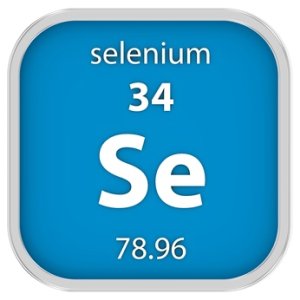 Even if you eat a healthy and balanced diet, it can be difficult to get enough
Even if you eat a healthy and balanced diet, it can be difficult to get enough  A new Chinese study that is published in the science journal, Heart, shows that eating an egg every day can lower your risk of stroke by 26 percent. The reason is that eggs contain
A new Chinese study that is published in the science journal, Heart, shows that eating an egg every day can lower your risk of stroke by 26 percent. The reason is that eggs contain 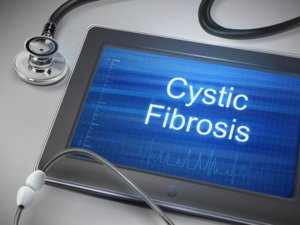 Supplementing with strong antioxidants such as beta-carotene, vitamin E, selenium, and coenzyme Q10 may help patients with cystic fibrosis by reducing a number of the respiratory infections that come with the disease. This was seen in a study by researchers at the Children’s Hospital Colorado and the University of Colorado, United States.
Supplementing with strong antioxidants such as beta-carotene, vitamin E, selenium, and coenzyme Q10 may help patients with cystic fibrosis by reducing a number of the respiratory infections that come with the disease. This was seen in a study by researchers at the Children’s Hospital Colorado and the University of Colorado, United States.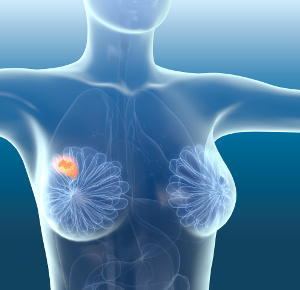 Having higher blood levels of
Having higher blood levels of 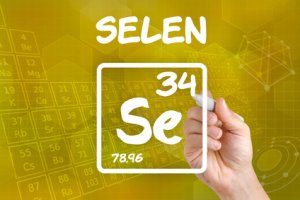 Climate changes and soil depletion increase the risk of selenium deficiency, especially in Europe as shown by Swiss scientists.
Climate changes and soil depletion increase the risk of selenium deficiency, especially in Europe as shown by Swiss scientists.  A new study links thyroid disorders to female infertility. At the same time, it is known that selenium, an essential micronutrient, is required for normal functioning of the thyroid gland. Modern diets are depleted of selenium and the question is: Could selenium supplements be a good place to begin for infertile couples before embarking on expensive IVF therapy?
A new study links thyroid disorders to female infertility. At the same time, it is known that selenium, an essential micronutrient, is required for normal functioning of the thyroid gland. Modern diets are depleted of selenium and the question is: Could selenium supplements be a good place to begin for infertile couples before embarking on expensive IVF therapy?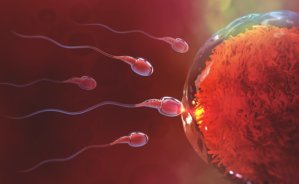 Infertility affects around one in seven couples. WHO considers it a global health problem. One of the leading causes is impaired semen quality, and Danish, Norwegian, and German men have lower sperm quality than any other male populations. Impaired sperm quality may be a result of an unhealthy lifestyle with stress, tobacco, stimulants, and hormone-disrupting compounds. On the other hand, scientists from Mexico have found that supplements of zinc, selenium, Q10, and omega-3 have an effect on the number of sperm cells and their quality. Other studies show that zinc and selenium protect sperm cells and are important for testosterone levels.
Infertility affects around one in seven couples. WHO considers it a global health problem. One of the leading causes is impaired semen quality, and Danish, Norwegian, and German men have lower sperm quality than any other male populations. Impaired sperm quality may be a result of an unhealthy lifestyle with stress, tobacco, stimulants, and hormone-disrupting compounds. On the other hand, scientists from Mexico have found that supplements of zinc, selenium, Q10, and omega-3 have an effect on the number of sperm cells and their quality. Other studies show that zinc and selenium protect sperm cells and are important for testosterone levels.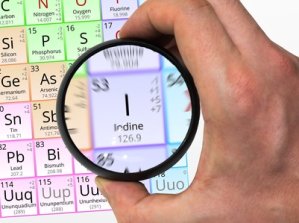 It appears so. Iodine is an essential trace element that is vital for metabolism and estrogen balance. Iodine also helps the body get rid of environmental toxins. In fact, exposure to these toxins increases our need for iodine, and many experts believe that the official recommendations for iodine are too low.
It appears so. Iodine is an essential trace element that is vital for metabolism and estrogen balance. Iodine also helps the body get rid of environmental toxins. In fact, exposure to these toxins increases our need for iodine, and many experts believe that the official recommendations for iodine are too low. It is vital for sportspeople, especially those who engage in elite sports and arduous training, to be adequately supplied with dietary fuel, vitamins and minerals, as deficiencies may impair their performance and increase the risk of sports injuries, infections, anemia, osteoporosis, and hormonal imbalances.
It is vital for sportspeople, especially those who engage in elite sports and arduous training, to be adequately supplied with dietary fuel, vitamins and minerals, as deficiencies may impair their performance and increase the risk of sports injuries, infections, anemia, osteoporosis, and hormonal imbalances. Having healthy-looking hair means a lot to most people. Hair that splits at the ends, hair loss, and other hair problems may be caused by stress, hormone changes, and numerous other factors. In this article, we will take a closer look at the diet and its impact on hair health, and we will look at available studies of protein, iron, zinc, selenium, silica, B vitamins, vitamin D and vitamin A. The fact is, we need plenty of these nutrients in a form that the body can absorb and utilize. On the other hand, getting too much can do more harm than good, according to an article in Dermatology Practical & Conceptual, in which the author has analyzed the available research.
Having healthy-looking hair means a lot to most people. Hair that splits at the ends, hair loss, and other hair problems may be caused by stress, hormone changes, and numerous other factors. In this article, we will take a closer look at the diet and its impact on hair health, and we will look at available studies of protein, iron, zinc, selenium, silica, B vitamins, vitamin D and vitamin A. The fact is, we need plenty of these nutrients in a form that the body can absorb and utilize. On the other hand, getting too much can do more harm than good, according to an article in Dermatology Practical & Conceptual, in which the author has analyzed the available research. Lack of
Lack of 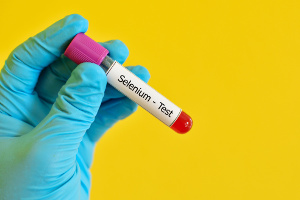
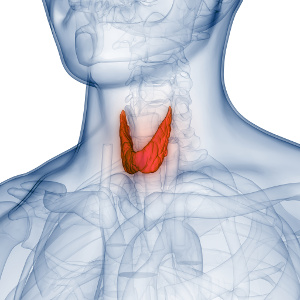 Hashimoto’s thyroiditis is the most common underlying cause of hypothyroidism. It is characterized by extreme fatigue, weight gain, and a number of other symptoms. Hashimoto’s is an autoimmune condition where antibodies attack the thyroid gland. Many people who get treatment for their disease don’t improve, on the contrary. According to a meta-analysis published in Medicine, however,
Hashimoto’s thyroiditis is the most common underlying cause of hypothyroidism. It is characterized by extreme fatigue, weight gain, and a number of other symptoms. Hashimoto’s is an autoimmune condition where antibodies attack the thyroid gland. Many people who get treatment for their disease don’t improve, on the contrary. According to a meta-analysis published in Medicine, however, 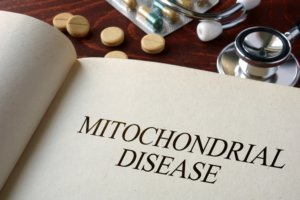 The mitochondria are the powerhouses of our cells that churn out energy in a process that involves oxygen, Q10, selenium, and other nutrients. Around 100 years ago, the German Nobel Prize winner, Professor Otto Warburg, demonstrated that even if cancer can be caused by a number of secondary factors, there is only one primary cause: alterations in the mitochondrial oxygen turnover. In his recent book, Tripping over the Truth, molecular biologist Travis Christoffersen describes how contemporary scientists confirm Warburg’s theories and says that we need to look at prevention and cancer treatment from an entirely different angle. Other studies show that Parkinson’s disease, migraine, senility, chronic fatigue, fibromyalgia, epilepsy, and other neurological disorders may be rooted in defects of the mitochondria that have many other functions besides delivering energy. It is therefore vital to take care of the mitochondria throughout life. You can read more about the ketogenic diet that optimizes mitochondrial energy turnover in different mitochondrial diseases.
The mitochondria are the powerhouses of our cells that churn out energy in a process that involves oxygen, Q10, selenium, and other nutrients. Around 100 years ago, the German Nobel Prize winner, Professor Otto Warburg, demonstrated that even if cancer can be caused by a number of secondary factors, there is only one primary cause: alterations in the mitochondrial oxygen turnover. In his recent book, Tripping over the Truth, molecular biologist Travis Christoffersen describes how contemporary scientists confirm Warburg’s theories and says that we need to look at prevention and cancer treatment from an entirely different angle. Other studies show that Parkinson’s disease, migraine, senility, chronic fatigue, fibromyalgia, epilepsy, and other neurological disorders may be rooted in defects of the mitochondria that have many other functions besides delivering energy. It is therefore vital to take care of the mitochondria throughout life. You can read more about the ketogenic diet that optimizes mitochondrial energy turnover in different mitochondrial diseases.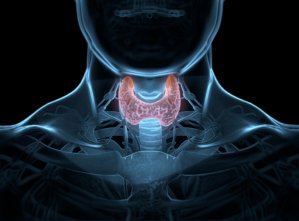
 Iodine's ability to protect against breast cancer has been demonstrated in animal studies. Furthermore, epidemiological studies suggest that consuming more dietary iodine lowers the risk of the dreaded disease, which represents 25% of all cancers in women.
Iodine's ability to protect against breast cancer has been demonstrated in animal studies. Furthermore, epidemiological studies suggest that consuming more dietary iodine lowers the risk of the dreaded disease, which represents 25% of all cancers in women.
 Kidney stones is a painful and quite common problem. The diet plays a major role and according to a large American population study published in Nutrients,
Kidney stones is a painful and quite common problem. The diet plays a major role and according to a large American population study published in Nutrients,  It is commonly known that degenerative diseases such as cardiovascular disease, diabetes, kidney ailments, and liver diseases are often linked to poor quality of life and shorter lifespan. Supplementing with Q10, possibly in combination with selenium yeast, may have a positive influence on the mentioned conditions and lower your risk of premature death by as much as 50 percent or more. In fact, Q10 can help delay the ageing processes by protecting the heart, cardiovascular system, and cells, according to a large review article published online by NCBI (National Center for Biotechnology Information). As mentioned in this article, it is essential to use supplements that are pharmaceutical-grade in order to ensure proper absorption in blood and tissue.
It is commonly known that degenerative diseases such as cardiovascular disease, diabetes, kidney ailments, and liver diseases are often linked to poor quality of life and shorter lifespan. Supplementing with Q10, possibly in combination with selenium yeast, may have a positive influence on the mentioned conditions and lower your risk of premature death by as much as 50 percent or more. In fact, Q10 can help delay the ageing processes by protecting the heart, cardiovascular system, and cells, according to a large review article published online by NCBI (National Center for Biotechnology Information). As mentioned in this article, it is essential to use supplements that are pharmaceutical-grade in order to ensure proper absorption in blood and tissue.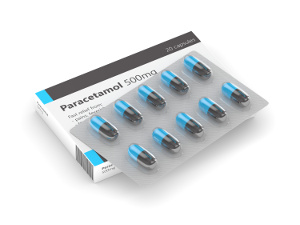 Millions of people take painkillers such as Panadol or Calpol that contain paracetamol, and an estimated one billion people or so lack
Millions of people take painkillers such as Panadol or Calpol that contain paracetamol, and an estimated one billion people or so lack  Earlier studies have found a link between low
Earlier studies have found a link between low 
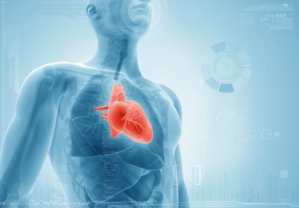 The majority of supplements with vitamins and minerals fails to extend life or protect against cardiovascular disease, although fish oil does seem to have a good effect, according to a large review from John Hopkins University. On the other hand, a Danish study shows that blood levels of vitamin D are crucial for a person’s expected lifespan, and a groundbreaking Swedish study shows that patented supplements with Q10 and selenium benefit older people by improving their cardiac health and reducing cardiovascular mortality by 50%. What matters is to use supplements that contain nutrients in the right quantity, which have a proper quality and can be absorbed by the body. In the following, you can read more about the different studies and learn how you can improve your heart health and increase your chances of a longer life.
The majority of supplements with vitamins and minerals fails to extend life or protect against cardiovascular disease, although fish oil does seem to have a good effect, according to a large review from John Hopkins University. On the other hand, a Danish study shows that blood levels of vitamin D are crucial for a person’s expected lifespan, and a groundbreaking Swedish study shows that patented supplements with Q10 and selenium benefit older people by improving their cardiac health and reducing cardiovascular mortality by 50%. What matters is to use supplements that contain nutrients in the right quantity, which have a proper quality and can be absorbed by the body. In the following, you can read more about the different studies and learn how you can improve your heart health and increase your chances of a longer life.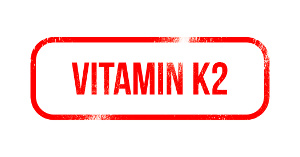 Your birth attest reveals your actual age but your biological age gives a more accurate picture of your health and life expectancy. Our biological age and cardiovascular health are closely connected, with atherosclerosis and arterial stiffness representing a progressive process that eventually leads to the majority of deaths. Nonetheless, you can do a lot yourself by making sure to get sufficient amounts the nutrients that are most vital for good cardiovascular health. In this article, we will look closer at some current studies of vitamin K2, Q10, selenium, and omega-3, all of which are essential nutrients that prevent, each in their own way, atherosclerosis, arterial stiffness, and premature death as a result of having high heart age.
Your birth attest reveals your actual age but your biological age gives a more accurate picture of your health and life expectancy. Our biological age and cardiovascular health are closely connected, with atherosclerosis and arterial stiffness representing a progressive process that eventually leads to the majority of deaths. Nonetheless, you can do a lot yourself by making sure to get sufficient amounts the nutrients that are most vital for good cardiovascular health. In this article, we will look closer at some current studies of vitamin K2, Q10, selenium, and omega-3, all of which are essential nutrients that prevent, each in their own way, atherosclerosis, arterial stiffness, and premature death as a result of having high heart age.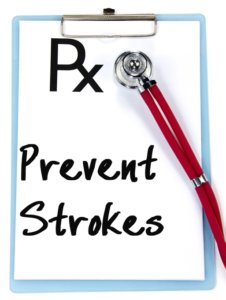 The whole climate debate has made it increasingly popular to become a vegetarian or a vegan. However, according to a new and comprehensive study from Oxford, this choice of lifestyle may have grave health consequences and can increase your risk of apoplexy, also known as stroke, cerebral hemorrhage or cerebral thrombosis. The study is published in British Medical Journal. Earlier studies also give rise to concern, as a plant-based diet often lacks protein, vitamin D, vitamin B12, iodine, selenium, iron, and omega-3 fatty acids, and that can increase the risk of thyroid disorders, neurological disorders, infections, chronic inflammation, impaired fertility, growth disturbances in children etc. Some of these deficiencies are insidious and difficult to link to the diet.
The whole climate debate has made it increasingly popular to become a vegetarian or a vegan. However, according to a new and comprehensive study from Oxford, this choice of lifestyle may have grave health consequences and can increase your risk of apoplexy, also known as stroke, cerebral hemorrhage or cerebral thrombosis. The study is published in British Medical Journal. Earlier studies also give rise to concern, as a plant-based diet often lacks protein, vitamin D, vitamin B12, iodine, selenium, iron, and omega-3 fatty acids, and that can increase the risk of thyroid disorders, neurological disorders, infections, chronic inflammation, impaired fertility, growth disturbances in children etc. Some of these deficiencies are insidious and difficult to link to the diet.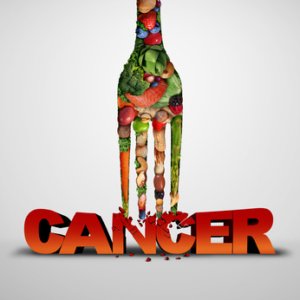 People, who eat nutrient-depleted diets, have an increased risk of contracting cancer, according to a French study that is published in PLoS Medicine. The scientists therefore recommend labeling food to help consumers make healthier choices. In the Nordic countries, we already have the “Keyhole label” on certain healthy food items, but even if you follow the official dietary guidelines, it may be difficult to get enough vitamin D and selenium, both of which are nutrients with several anti-cancer mechanisms.
People, who eat nutrient-depleted diets, have an increased risk of contracting cancer, according to a French study that is published in PLoS Medicine. The scientists therefore recommend labeling food to help consumers make healthier choices. In the Nordic countries, we already have the “Keyhole label” on certain healthy food items, but even if you follow the official dietary guidelines, it may be difficult to get enough vitamin D and selenium, both of which are nutrients with several anti-cancer mechanisms. During pregnancy, the unborn child needs different nutrients for proper development of its brain and nervous system. Even if the mother eats a balanced diet, it can be difficult to get enough
During pregnancy, the unborn child needs different nutrients for proper development of its brain and nervous system. Even if the mother eats a balanced diet, it can be difficult to get enough  Most people thrive on the idea of staying physically active throughout life, but as we grow older, our skeletal muscle slowly vanishes and our figure changes. This is known as sarcopenia and is one of the main reasons why older people become more fragile and perhaps even disabled. Exercise and diet play a major role, and it seems that the official dietary guidelines are not optimal and should focus more on increased intake of protein as well as lysine, vitamin D, and omega-3 according to a new Canadian study. Earlier research shows that magnesium, selenium, and Q10 are also important for muscle mass and strength.
Most people thrive on the idea of staying physically active throughout life, but as we grow older, our skeletal muscle slowly vanishes and our figure changes. This is known as sarcopenia and is one of the main reasons why older people become more fragile and perhaps even disabled. Exercise and diet play a major role, and it seems that the official dietary guidelines are not optimal and should focus more on increased intake of protein as well as lysine, vitamin D, and omega-3 according to a new Canadian study. Earlier research shows that magnesium, selenium, and Q10 are also important for muscle mass and strength.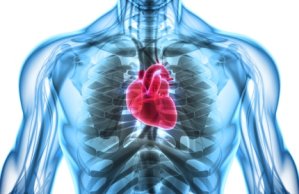
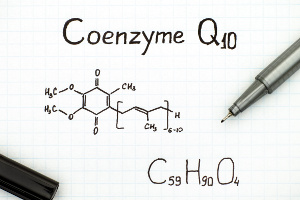 A previous study has demonstrated that daily supplementation with
A previous study has demonstrated that daily supplementation with 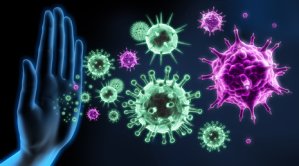 The immune system needs selenium every single day. Lack of this nutrient increases your risk of virus infections, inflammation, and cancer. It is a huge problem that many of us get too little selenium because of factors such as nutrient-depleted soil and unhealthy eating habits.
The immune system needs selenium every single day. Lack of this nutrient increases your risk of virus infections, inflammation, and cancer. It is a huge problem that many of us get too little selenium because of factors such as nutrient-depleted soil and unhealthy eating habits.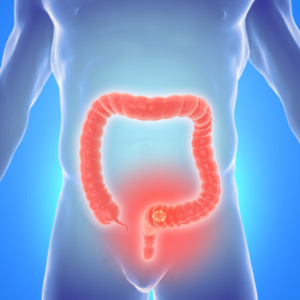 Colorectal cancer is one of the most common cancer types. Although the diet is of huge importance, the understanding of minerals and their interactions and preventative effect is limited. Earlier studies have shown that calcium and selenium have protective roles. It also looks as if having more selenium in the blood can improve the effect of calcium. This was demonstrated in a new Polish study that is published in BMC Nutrition. The scientists point out that there is widespread selenium deficiency in Europe and that supplementation may be needed.
Colorectal cancer is one of the most common cancer types. Although the diet is of huge importance, the understanding of minerals and their interactions and preventative effect is limited. Earlier studies have shown that calcium and selenium have protective roles. It also looks as if having more selenium in the blood can improve the effect of calcium. This was demonstrated in a new Polish study that is published in BMC Nutrition. The scientists point out that there is widespread selenium deficiency in Europe and that supplementation may be needed.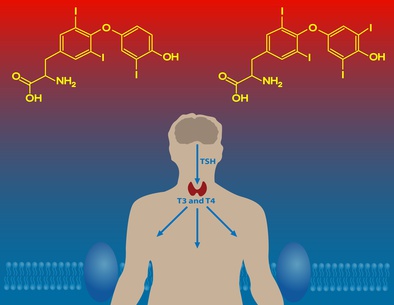
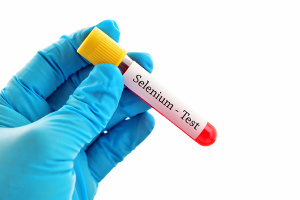
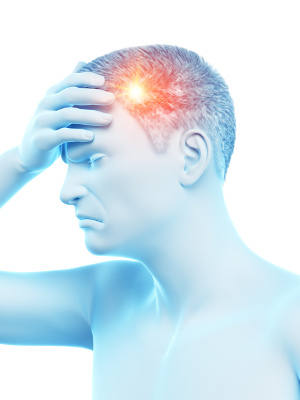 There is a growing interest among scientists in selenium’s role in the brain and nervous system, and a placebo-controlled study published in Frontiers in Nutrition shows that
There is a growing interest among scientists in selenium’s role in the brain and nervous system, and a placebo-controlled study published in Frontiers in Nutrition shows that 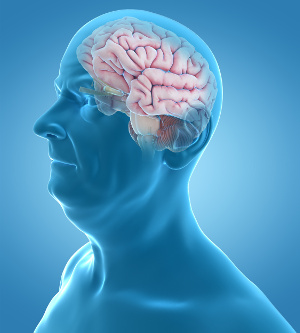 There seems to be a relation between ageing, Alzheimer’s disease, and the widespread problems with selenium deficiency. According to a new study that is published in Antioxidants, scientist have revealed how different selenium-containing proteins can affect pathological processes in the brain that are known to cause Alzheimer’s disease. They believe
There seems to be a relation between ageing, Alzheimer’s disease, and the widespread problems with selenium deficiency. According to a new study that is published in Antioxidants, scientist have revealed how different selenium-containing proteins can affect pathological processes in the brain that are known to cause Alzheimer’s disease. They believe 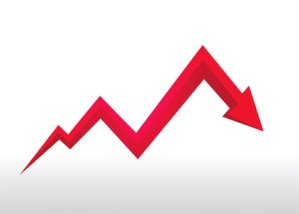 Although cancer treatments have improved drastically, science has still not managed to break the curve. On the contrary. A growing number of people contract cancer, and that is why we should focus more on the trace element,
Although cancer treatments have improved drastically, science has still not managed to break the curve. On the contrary. A growing number of people contract cancer, and that is why we should focus more on the trace element, 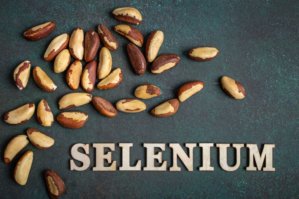 Lack of
Lack of 
 with the trace element selenium may reduce a man's risk of developing prostate cancer, according to a Danish report.
with the trace element selenium may reduce a man's risk of developing prostate cancer, according to a Danish report.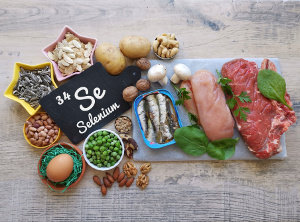
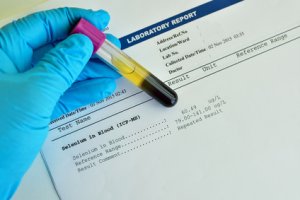 We all get exposed to mercury, a neurotoxin that is found to a great extent in nature and in our environment. According to an EU report, mercury is a large economic burden to society because of the costs related to lowered IQ levels. For that reason alone, we should aim to limit our exposure to mercury and also take a closer look at how selenium protects against the harmful heavy metal – provided our selenium levels are adequately high.
We all get exposed to mercury, a neurotoxin that is found to a great extent in nature and in our environment. According to an EU report, mercury is a large economic burden to society because of the costs related to lowered IQ levels. For that reason alone, we should aim to limit our exposure to mercury and also take a closer look at how selenium protects against the harmful heavy metal – provided our selenium levels are adequately high.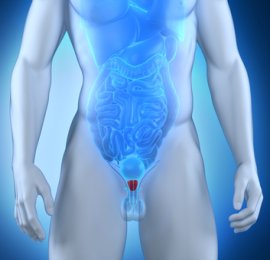 Low selenium status increases a man's risk of prostate cancer and Danish men are particularly susceptible, according to a study published in British Journal of Nutrition. Earlier studies have shown that supplementation with selenium prevents prostate cancer, and selenium yeast has been shown to have the best effect.
Low selenium status increases a man's risk of prostate cancer and Danish men are particularly susceptible, according to a study published in British Journal of Nutrition. Earlier studies have shown that supplementation with selenium prevents prostate cancer, and selenium yeast has been shown to have the best effect.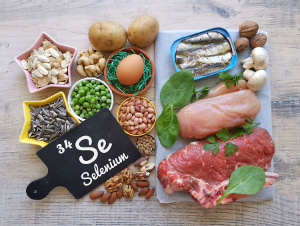 The rate of inflammatory bowel diseases like ulcerous colitis is growing, and diet plays a major role. Even if you eat a healthy diet, it can be a challenge to get enough
The rate of inflammatory bowel diseases like ulcerous colitis is growing, and diet plays a major role. Even if you eat a healthy diet, it can be a challenge to get enough  Cancer in the colon and rectum is rather common. One in 20 Danes gets colon cancer at some point in life. Since 2014, the Danish Health Authority has recommended a screening program, offering middle-aged and older people a screening for colon cancer every other year. If the disease is discovered in its early stage, the chances of successful treatment increase. Supplementation with organic selenium yeast has been shown to lower the risk of colorectal cancer in the first place, and selenium even has a protective effect against other cancer forms, so the nutrient is an essential part of the prevention. The problem is that selenium deficiencies are so common as a result of our nutrient-depleted soil.
Cancer in the colon and rectum is rather common. One in 20 Danes gets colon cancer at some point in life. Since 2014, the Danish Health Authority has recommended a screening program, offering middle-aged and older people a screening for colon cancer every other year. If the disease is discovered in its early stage, the chances of successful treatment increase. Supplementation with organic selenium yeast has been shown to lower the risk of colorectal cancer in the first place, and selenium even has a protective effect against other cancer forms, so the nutrient is an essential part of the prevention. The problem is that selenium deficiencies are so common as a result of our nutrient-depleted soil.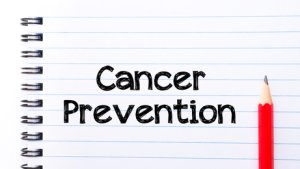 All our cells contain different
All our cells contain different  Involuntary childlessness has become increasingly common. Many women find themselves in a race against time, and their biological clock keeps ticking louder and louder. Fertility therapies, miscarriages, preeclampsia, and other complications during pregnancy contribute to the physical and emotional burden. In a new Australian study that is published in Nutrients, the authors write about
Involuntary childlessness has become increasingly common. Many women find themselves in a race against time, and their biological clock keeps ticking louder and louder. Fertility therapies, miscarriages, preeclampsia, and other complications during pregnancy contribute to the physical and emotional burden. In a new Australian study that is published in Nutrients, the authors write about  Cancer has become one of the leading causes of death, with rates going up every year. The diet plays a major role and there is a lot of focus on
Cancer has become one of the leading causes of death, with rates going up every year. The diet plays a major role and there is a lot of focus on 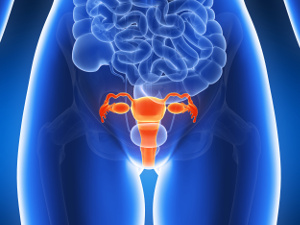
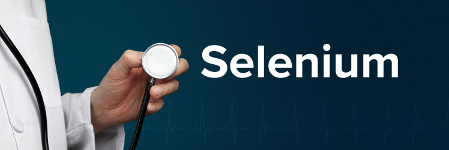
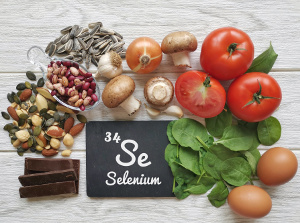
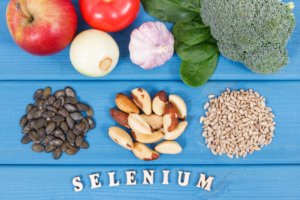
 Regular sport is good for you, whereas arduous training and high-performance sport can result in physical injuries, infections, chronic inflammation, and serious diseases due to oxidative stress. This phenomenon occurs as a result of the increased energy turnover, which produces an excess of free radicals that cause damage to cells and tissues. Oxidative stress is also associated with impaired performance, poor restitution, and faster ageing. Our only natural defense against free radicals is the presence of antioxidants, and it is especially things like
Regular sport is good for you, whereas arduous training and high-performance sport can result in physical injuries, infections, chronic inflammation, and serious diseases due to oxidative stress. This phenomenon occurs as a result of the increased energy turnover, which produces an excess of free radicals that cause damage to cells and tissues. Oxidative stress is also associated with impaired performance, poor restitution, and faster ageing. Our only natural defense against free radicals is the presence of antioxidants, and it is especially things like 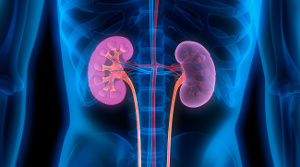 The kidneys cleanse our blood. Well-functioning kidneys are vital for the circulatory system and good health in general. Normal functioning of cells, including kidney cells, hinges on a host of different selenium-containing proteins and coenzyme Q10. Studies show that older people in many parts of the world, Europe included, have deficiencies of both substances. Therefore, a team of Swedish scientists conducted a study where they looked at selenium status and kidney function in a group of seniors. They gave selenium yeast and coenzyme Q10 or placebo to the participants for a period of four years. The results showed that the supplemented group as compared with the placebo group had improved kidney function according to several parameters. The positive effect on cellular energy metabolism, inflammation, and oxidative stress was attributed to the two supplements. The study is published in the science journal Nutrients.
The kidneys cleanse our blood. Well-functioning kidneys are vital for the circulatory system and good health in general. Normal functioning of cells, including kidney cells, hinges on a host of different selenium-containing proteins and coenzyme Q10. Studies show that older people in many parts of the world, Europe included, have deficiencies of both substances. Therefore, a team of Swedish scientists conducted a study where they looked at selenium status and kidney function in a group of seniors. They gave selenium yeast and coenzyme Q10 or placebo to the participants for a period of four years. The results showed that the supplemented group as compared with the placebo group had improved kidney function according to several parameters. The positive effect on cellular energy metabolism, inflammation, and oxidative stress was attributed to the two supplements. The study is published in the science journal Nutrients.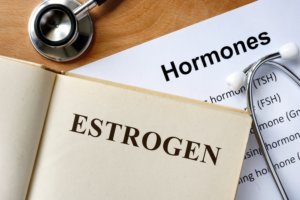 A woman’s estrogen balance is of vital importance to her fertility, mucosa, mood, libido, bones, cancer preventions, and many other things. There are also many myths about estrogen, which is merely a common term for the three types of estrogen – estradiol, estrone, and estriol – that have widely different functions. Like progesterone, stress hormones, and testosterone, estrogen belongs to the group of steroid hormones, where one hormone is built from another with help from enzymes. These enzymes depend on various nutrients such as iodine, vitamin D, magnesium, and selenium. If we lack these nutrients it may increase our risk of hormone imbalances, hot flushes, dry mucosa, bladder problems, and breast cancer.
A woman’s estrogen balance is of vital importance to her fertility, mucosa, mood, libido, bones, cancer preventions, and many other things. There are also many myths about estrogen, which is merely a common term for the three types of estrogen – estradiol, estrone, and estriol – that have widely different functions. Like progesterone, stress hormones, and testosterone, estrogen belongs to the group of steroid hormones, where one hormone is built from another with help from enzymes. These enzymes depend on various nutrients such as iodine, vitamin D, magnesium, and selenium. If we lack these nutrients it may increase our risk of hormone imbalances, hot flushes, dry mucosa, bladder problems, and breast cancer. 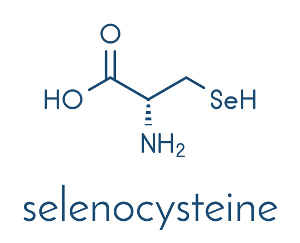
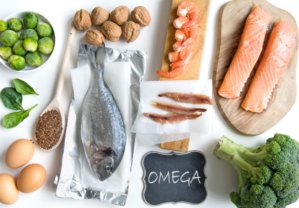 The global differences in prostate cancer rates reveal that this type of cancer is associated with lifestyle. For example, Inuits have a very low rate of prostate cancer, which is attributed to their high intake of
The global differences in prostate cancer rates reveal that this type of cancer is associated with lifestyle. For example, Inuits have a very low rate of prostate cancer, which is attributed to their high intake of  During the winter period, many people catch a cold or are bed-ridden with a bout of the flu. They may consider this to be perfectly natural, but it is actually a sign of a weakened immune defense, and that makes them susceptible to contamination. What matters is to make sure to get plenty of vitamin D, vitamin C, selenium, and zinc, all of which are nutrients that have different functions in the immune system. Some nutrients are also needed in larger quantities to tackle a beginning infection, and it is important to act quickly in order to nip the infection in the bud.
During the winter period, many people catch a cold or are bed-ridden with a bout of the flu. They may consider this to be perfectly natural, but it is actually a sign of a weakened immune defense, and that makes them susceptible to contamination. What matters is to make sure to get plenty of vitamin D, vitamin C, selenium, and zinc, all of which are nutrients that have different functions in the immune system. Some nutrients are also needed in larger quantities to tackle a beginning infection, and it is important to act quickly in order to nip the infection in the bud.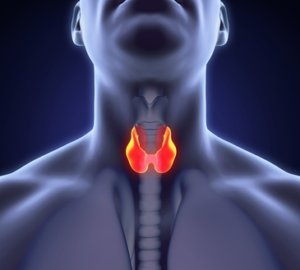 An estimated 500,000 Danes suffer from some kind of thyroid disorder, the most common of which is Hashimoto’s disease, which slows down your metabolism. The formation and activation of thyroid hormones depend on iodine and selenium, and it is essential that the two nutrients are properly balanced. Having too little or too much iodine increases your risk of Hashimoto’s disease, and the same is the case with selenium, a nutrient that many people lack.
An estimated 500,000 Danes suffer from some kind of thyroid disorder, the most common of which is Hashimoto’s disease, which slows down your metabolism. The formation and activation of thyroid hormones depend on iodine and selenium, and it is essential that the two nutrients are properly balanced. Having too little or too much iodine increases your risk of Hashimoto’s disease, and the same is the case with selenium, a nutrient that many people lack.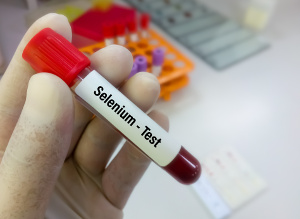 Both physical traumas and critical illnesses are associated with inflammation and oxidative stress where free radicals can cause potentially life-threatening damage to cells and tissues. Traumas are estimated to be the cause of one in ten deaths. New research suggests that early intervention with
Both physical traumas and critical illnesses are associated with inflammation and oxidative stress where free radicals can cause potentially life-threatening damage to cells and tissues. Traumas are estimated to be the cause of one in ten deaths. New research suggests that early intervention with  Telomeres are protective caps at the end of our DNA strands. You can compare them to the small plastic aglets that prevent shoelaces from unraveling. For each time a cell divides, the telomeres become shorter. The length of telomeres conveniently indicates our biological age. Diet plays a role and according to a large population study, vitamin C intake is linked to telomere length. The same is the case with Q10 and selenium, according to Swedish research. Vitamin C, Q10, and selenium serve as unique antioxidants that protect the telomeres and the cells against damage caused by oxidative stress.
Telomeres are protective caps at the end of our DNA strands. You can compare them to the small plastic aglets that prevent shoelaces from unraveling. For each time a cell divides, the telomeres become shorter. The length of telomeres conveniently indicates our biological age. Diet plays a role and according to a large population study, vitamin C intake is linked to telomere length. The same is the case with Q10 and selenium, according to Swedish research. Vitamin C, Q10, and selenium serve as unique antioxidants that protect the telomeres and the cells against damage caused by oxidative stress.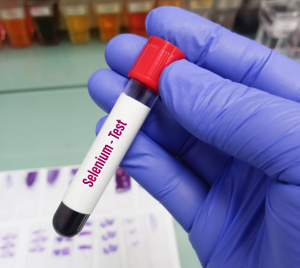
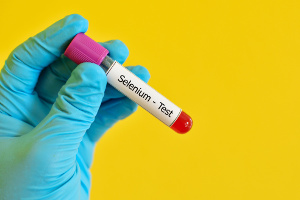
 "After about one week of taking the Q10 supplement I could feel a huge difference," says 23-year old Alan Piccini, who has been suffering from extreme fatigue and muscle aches ever since he was a child.
"After about one week of taking the Q10 supplement I could feel a huge difference," says 23-year old Alan Piccini, who has been suffering from extreme fatigue and muscle aches ever since he was a child. “Taking capsules with co-enzyme Q10 has freed me of the severe side effects of my cholesterol lowering medicine,” Mrs Franken explains.
“Taking capsules with co-enzyme Q10 has freed me of the severe side effects of my cholesterol lowering medicine,” Mrs Franken explains.